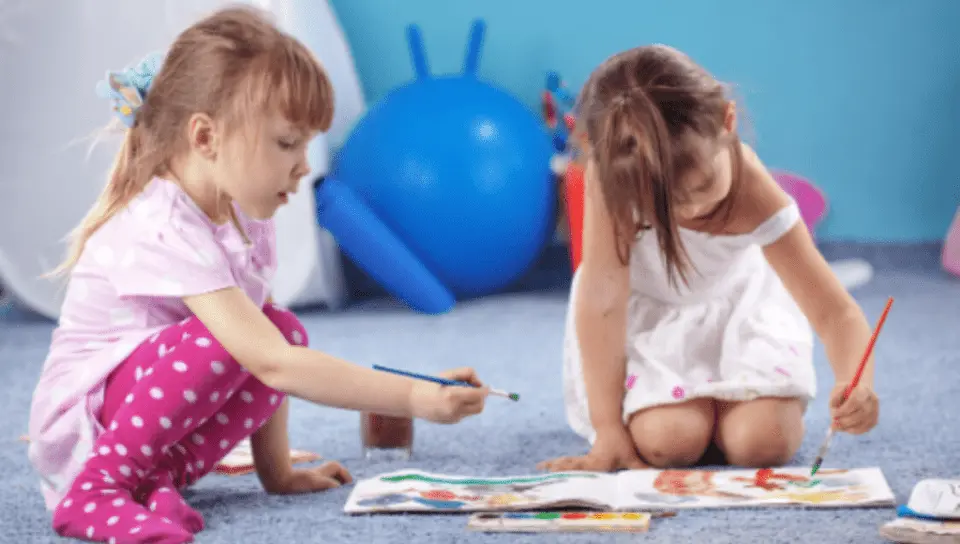As parents, it is our responsibility to equip our children with the necessary skills to navigate through life and become successful and well-rounded individuals. While academic knowledge is important, there are several essential life skills that go beyond the classroom. In this post, we will explore five key skills that parents should teach their kids to help them thrive in various aspects of life.
1. Communication Skills
Effective communication is vital for building relationships, resolving conflicts, and expressing thoughts and feelings. Parents should encourage their kids to develop strong communication skills by actively listening, using clear and concise language, and practicing empathy. Teaching children how to express themselves appropriately and respectfully will benefit them in school, social interactions, and future professional endeavors.
Here are some practical examples of communication skills to teach your children. Remember, these skills are best taught through modeling and practice. Engage in open and respectful communication with your child, and provide opportunities for them to practice these skills in various social settings.
Active listening: Teach your child to listen attentively when someone is speaking to them. Encourage them to make eye contact, nod, or respond appropriately to show that they are engaged in the conversation.
Speaking clearly and confidently: Help your child practice speaking clearly and using proper pronunciation. Encourage them to speak up and share their thoughts and opinions in a confident manner.
Empathy and perspective-taking: Teach your child to understand and consider other people’s feelings and perspectives. Encourage them to put themselves in someone else’s shoes and consider how they would feel in a given situation.
Expressing feelings: Teach your child how to express their feelings effectively. Encourage them to use “I” statements to express their emotions, for example, saying, “I feel sad when…” rather than blaming or attacking others.
Non-verbal communication: Help your child understand the importance of body language and facial expressions in communication. Teach them to be aware of their own non-verbal cues and to interpret those of others.
Respecting others’ opinions: Teach your child to respectfully listen to and accept different opinions, even if they disagree. Encourage them to engage in constructive discussions and debates while maintaining respect for others’ viewpoints.
Conflict resolution: Teach your child effective strategies for resolving conflicts, such as using “I” statements, active listening, and finding compromises. Encourage them to seek peaceful resolutions rather than resorting to aggression or avoidance.
2. Emotional Intelligence:

Emotional intelligence refers to the ability to recognize, understand, and manage emotions in oneself and others. It is crucial for developing healthy relationships and coping with challenges. Parents can nurture emotional intelligence by encouraging their children to identify and express their emotions, teaching empathy and perspective-taking, and providing strategies for managing stress and difficult situations. By empowering children with emotional intelligence, parents set them up for better mental health and success in interpersonal interactions.
Here are some practical examples of emotional intelligence skills to teach your children. Remember that teaching emotional intelligence takes time and patience. Engage in open conversations with your child about emotions, model empathy, and self-regulation, and provide opportunities for them to practice these skills in real-life situations.
Identifying emotions: Teach your child to recognize and name different emotions, both in themselves and others. Encourage them to express their feelings openly and help them understand that all emotions are valid.
Empathy: Encourage your child to understand and share the feelings of others. Help them recognize the impact of their actions on others and teach them to be sensitive and considerate towards others’ emotions.
Self-awareness: Help your child develop an awareness of their own emotions, strengths, and weaknesses. Encourage them to reflect on their feelings and thoughts and to understand how those emotions influence their behavior.
Emotional regulation: Teach your child strategies for managing their emotions in healthy ways. Help them identify coping mechanisms that work for them, such as deep breathing, taking a break, or talking about their feelings with a trusted adult.
Problem-solving: Teach your child problem-solving skills and encourage them to find constructive ways to resolve conflicts and challenges. Help them understand that there may be multiple solutions to a problem and support them in brainstorming and evaluating different options.
Social skills: Help your child develop positive social skills, such as active listening, showing gratitude, and demonstrating kindness and respect towards others. Encourage them to develop healthy relationships and to understand the impact of their actions on others’ well-being.
Mindfulness: Introduce your child to mindfulness exercises to help them stay present and aware of their emotions. Encourage them to focus on the present moment, practice deep breathing, and engage in activities that promote relaxation and stress reduction.
3. Problem-Solving Skills

Life is full of challenges and problems that require critical thinking and problem-solving skills. Parents can foster these abilities by encouraging their children to think creatively, approach problems from different perspectives, and break them down into manageable steps. Teaching kids problem-solving skills helps them become independent thinkers who can tackle obstacles with confidence and resilience.
Here are some practical examples of problem-solving skills that you can teach your children. Remember to provide guidance and support throughout the process, but also allow your child the opportunity to problem-solve independently. This will help them develop their critical thinking skills and boost their confidence in their ability to tackle challenges.
Define the problem: Teach your child to clearly identify and define the problem they are facing. Encourage them to articulate what the issue is and make sure they understand what needs to be solved.
Brainstorm solutions: Help your child generate multiple possible solutions to the problem. Encourage them to think creatively and suggest different approaches. Remind them that no idea is too silly or unrealistic during the brainstorming process.
Evaluate options: Once your child has come up with several possible solutions, help them evaluate each option. Discuss the pros and cons of each solution and encourage them to consider the potential consequences of each choice.
Make a decision: Guide your child in making a decision by weighing the different options based on their evaluation. Help them understand that sometimes there may be trade-offs and that they should consider what aligns with their values and goals.
Implement the chosen solution: Once a decision has been made, help your child create an action plan for implementing the chosen solution. Break down the steps necessary to solve the problem and encourage your child to take ownership of their plan.
Reflect and learn: After the problem has been solved, take the time to reflect with your child on the experience. Discuss what worked well, what didn’t, and what they learned from the process. Emphasize that mistakes and setbacks are opportunities for growth and learning.
Practice persistence: Encourage your child to persist and not give up when faced with challenges along the way. Help them understand that problem-solving often requires patience and resilience.
Seek help when needed: Teach your child the importance of seeking help when they face a problem that they can’t solve on their own. Encourage them to reach out to trusted adults, teachers, or peers who can provide guidance and support.
4. Financial Literacy





